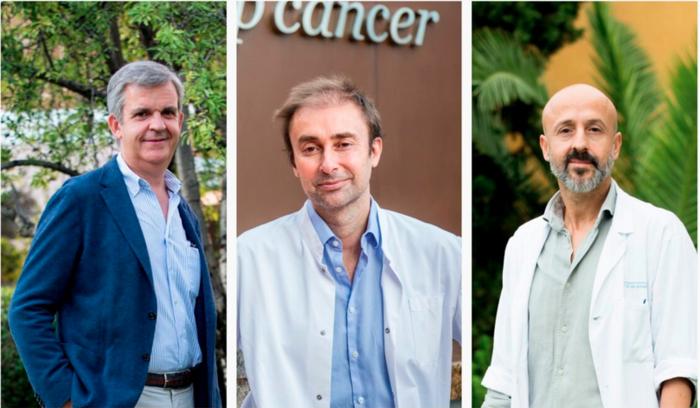The company TNC Terapia brings therapeutic nutrition to patients with solid tumours, seeking to enhance cancer treatments for the first time by applying current knowledge on the relationship between diet and cancer.

Credit: Image courtesy TNC Terapia
The company TNC Terapia brings therapeutic nutrition to patients with solid tumours, seeking to enhance cancer treatments for the first time by applying current knowledge on the relationship between diet and cancer.
TNC Terapia offers personalised dietary plans thanks to the LUMICA algorithm, owned by the National Cancer Research Centre (CNIO) and Hospital 12 de Octubre.
LUMICA integrates all the knowledge currently available about the interaction between diet and cancer. It takes into account variable factors in each patient, such as the microbiome and the immune system.
The National Cancer Research Centre (CNIO) and the Hospital 12 de Octubre Biomedical Research Foundation are launching TNC Terapia, a spin-off company that offers personalised nutritional and therapeutic plans for people with cancer.
TNC Terapia specialises in providing therapeutic nutrition against cancer, offering personalised diets for patients diagnosed with tumours. These are diets designed to maximise the effectiveness of the cancer treatments they are receiving, while avoiding side effects as much as possible.
Both objectives are achieved through strategies based on knowledge about the metabolism of tumour cells, which in recent years has revealed vulnerabilities in cancer cells. TNC Terapia exploits these nutrition-related cancer weaknesses to enhance treatments in a personalised way.
An algorithm that integrates all available knowledge regarding diet and cancer
This is done thanks to the LUMICA algorithm, co-owned by CNIO and the H12O. The development of LUMICA by the partners of TNC Terapia in 2022 made it possible to set up this company as a spin-off from the two public biomedical research bodies.
Miguel Quintela, founding partner and scientific director of TNC Terapia, and director of the CNIO Clinical Research Programme, explains: “There is already a very broad understanding of the relationship between nutrition, cancer and numerous factors that vary in each patient: the type of tumour mutation, metabolic aberrations, interventions that have demonstrated preclinical or clinical efficacy, alterations of the microbiome… LUMICA integrates this knowledge and proposes dietary guidelines, which it converts into a specific diet.”
“This has not been done previously and has required, apart from the screening of thousands of scientific articles, the combined expertise of doctors, oncologists, nutritionists, physiologists, microbiologists, geneticists, etc.,” adds Quintela. “Perhaps for that reason, due to the difficulty of just one professional being able to combine and integrate all this knowledge, it has not been done specifically until now.”
Novel approach
The use of diet as a therapeutic tool is a novel approach. Oncological nutrition has always been considered a way to improve patient quality of life, seeking to solve issues such as lack of appetite, nausea, difficulty in swallowing, alteration in the perception of tastes, the state of cachexia or protein deficiency, among other symptoms. But until now, diet has not been used to increase the effectiveness of the treatment.
“The specialists in oncology and nutrition at TNC Terapia,” Quintela continues, “design a personalised plan for each patient that takes into account the type of tumour, the specific treatment the patient is receiving, the mutations of that tumour, the genetics of the patient, their microbiome – a group of microorganisms that inhabit the intestine – and other possible diseases that they may present.” With this data, a diet is designed that is practically unique for each patient.
For Luis Manso, founding partner, medical director of TNC Terapia and assistant physician in the Oncology service at Hospital 12 de Octubre, “the metabolism of cancer cells and its relationship with nutrition has been, for a few years now, one of the most promising avenues of research in the field of oncology. Studies by the best research groups around the world have been unravelling the ways in which it is possible to influence the cancer process through nutrition.”
It is already clear that “diets, and supplementation, can act directly on the cancer metabolism by depriving tumours of the nutrients they need and modulating other key elements for cancer survival and progression,” says Quintela.
The nutritional guidelines recommended by TNC Terapia have three basic purposes:
1.- Provide nutrients that are either toxic to tumour cells and harmless to healthy cells, or which enhance the activity of the treatment.
2.- Eliminate or decrease nutrients that promote tumour growth or prevent the action of treatment.
3.-Intervene in the composition of intestinal microbiota, to help the immune system boost the action of the treatment.
TNC Terapia offers these personalised nutrition plans through its web platform to any adult diagnosed with a solid tumour.



